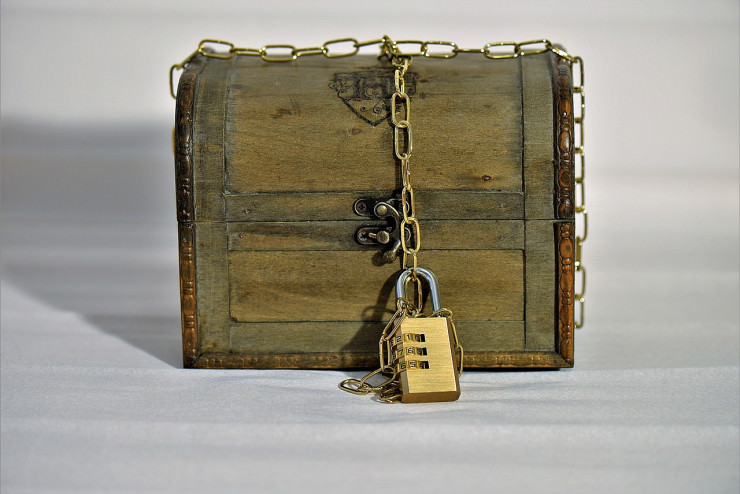First concrete proposal to regulate loot boxes

Loot boxes have always been criticised as gambling or gambling-like features. WestLotto has now presented what it calls "the first concrete approach to the legal control of gambling-like elements in games". What exactly does this mean?
Loot boxes are digital goodies that can offer significant benefits to their users, especially in video games. However, the fact that you have to buy them, and that you only know what you are getting once you have paid for them, means that they and their responsible use are often the subject of heated debate. We have reported on the criticism and even bans that have arisen, such as the classification of FIFA Loot Boxes as illegal gambling in Austria.
In Germany, WestLotto recently presented a regulatory proposal for loot boxes in video games. According to a press release from the organisation, this is the "first concrete approach for the legal control of gambling-like elements in games". The whole thing was drafted by gaming lawyer Carsten Bringmann of Noerr.
What is WestLotto's regulatory proposal for loot boxes?
The approach to regulating loot boxes in video games published by WestLotto is essentially aimed at a new § 14b in the German Protection of Young Persons Act. The gambling lawyer Carsten Bringmann of Noerr has drafted a paper on the subject, which is based on a years-long exchange of experts in which WestLotto played a leading role: This can be read on the lottery provider's website.
Christiane Jansen, Managing Director of WestLotto, explains the main objective of the proposal: "We want to stimulate a concrete discussion among decision-makers in the federal government. To this end, six main points have been identified and summarised which could be used to regulate loot boxes and gambling-like elements in video games in general.
- Registration: The key point here is that games with loot boxes should require account creation, including a monthly deposit, purchase limit and addiction risk information.
- Identification and authentication: This item suggests that payments should at least use two-factor authentication with redirection. "The information provided during registration shall be verified through identification and authentication," the approach literally reads
- Design: In particular, this area stipulates that loot boxes should only be presented or advertised as an option and not as a must-have. In addition, the random generators used to fill loot boxes must be audited annually by independent experts.
- Advertising: Loot boxes should not be advertised to minors.
- Mandatory disclosures: It is proposed that before a loot box is purchased, the gambling nature of the feature should be clearly stated. Further advertising during the purchase process should be prohibited. "The price should be displayed in euros and cents and the total amount spent on loot box purchases over the last 30 days should also be displayed in euros and cents," the proposal states.
- Labelling: Where games with loot boxes are available on physical media, typically Blu-ray discs, these should clearly indicate that the title is equipped with such features. Such games should also be clearly labelled on the internet.
The Federal Ministry for Family Affairs, Senior Citizens, Women and Youth will have the power to issue ordinances. According to the proposal, the Federal Centre for the Protection of Children and Young Persons in the Media will be responsible for ensuring compliance with the regulations.
Why is WestLotto in particular campaigning for the regulation of loot boxes?
WestLotto has also published a paper with background information on the current regulatory proposal. Among other things, it answers the question of why the lottery operator is taking such an initiative on loot boxes.
According to Christiane Jansen, who is quoted in the information sheet, the organisation "recognised years ago that gambling-like elements in games are a growing problem for children and young people". She said the company was aware of its responsibility as a gaming company and wanted to counteract the possible "introduction of problematic gaming behaviour" through loot boxes at an early stage. "As a responsible operator, we see it as our duty to ensure that in a few years' time we do not have players who started playing as minors - and bring problem gambling with them," said Jansen.
A discussion about banning loot boxes is strictly rejected: Instead, they want to continue to rely on an "intensive exchange with scientific, political and legal experts", which is also the basis of the current regulatory proposal. In general, there is a great need to prevent gambling.
Conclusion
Regulating loot boxes in video games seems sensible on many levels. Numerous cases have shown that people can get into financial difficulties as a result of using such features.
It is not uncommon for such cases to involve thousands, sometimes even tens of thousands of euros. The fact that such sums are not utopian was impressively demonstrated by MontanaBlack, who invested 40,000 euros in CS:GO boxes just last summer.
Why WestLotto has decided to go ahead with such a scheme does not really make sense, despite the explanation. Will those responsible soon also take care of the problematic processes in skin gambling that are specific to the protection of minors?
Image source: https://pixabay.com/de/photos/schatzkiste-kette-schlo%C3%9F-3005312/

0 Comments to: First concrete proposal to regulate loot boxes
Our community thrives on your feedback - so let us know what you think!
Would you like to write comments on GambleJoe yourself? Then just create a GambleJoe User Account.